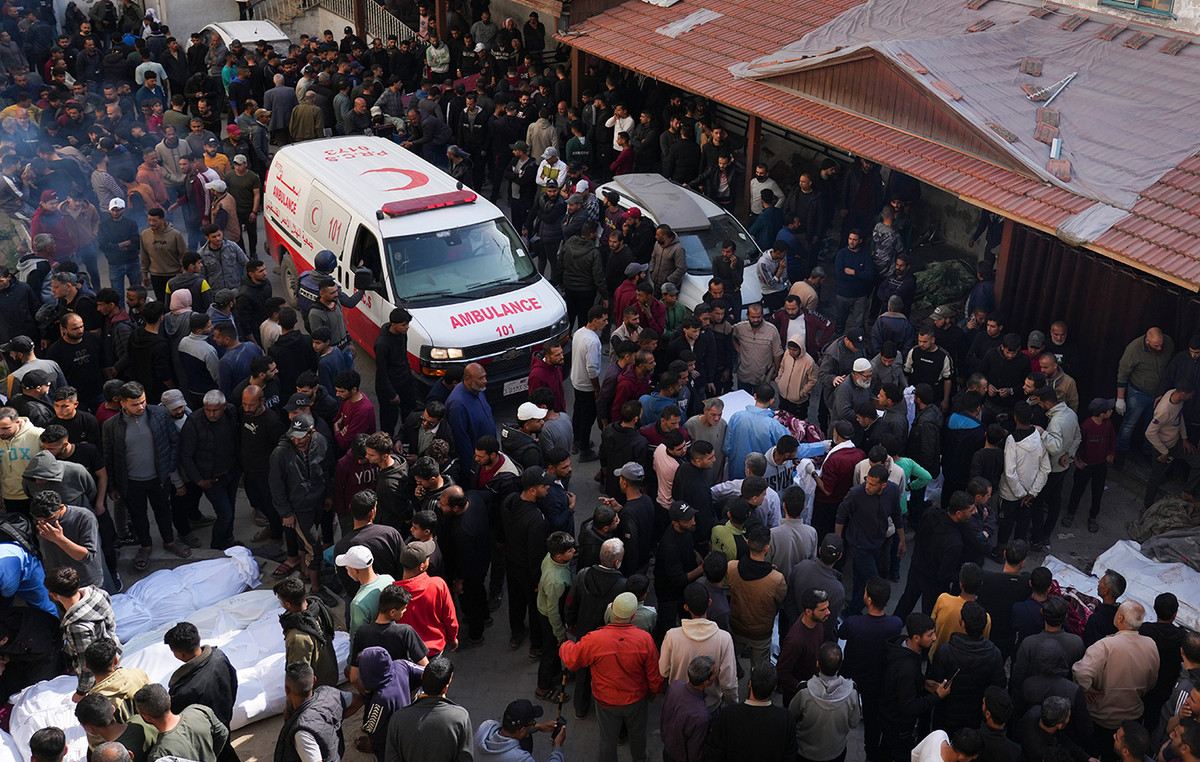As the world awaits Israel’s response to Iran’s ballistic missile attack, Tel Aviv will not follow the advice of US President Joe Biden or former President Donald Trump, said Steven Cook, a senior fellow at the Council on Foreign Relations.
Biden stated that Israel should not attack Iran’s nuclear or oil facilities, while Trump – current candidate for the presidential election – suggested that Israel do so. “Israelis are not going to be limited by what the president and the former president have to say,” Cook told Michael Holmes of CNN .
“They will attack Iranian facilities and weaponry that are most dangerous to Israel.” “The real question is how far up the escalation ladder the Israelis will go and whether the Iranians feel obligated to respond,” Cook added.
Israel’s objective will be to intimidate Iran, which has already committed to retaliating if Israel attacks. “That’s where you see the direction this conflict could take,” Cook said.
There are risks of going too far, adding that as long as the war continues, Israel runs the risk of radicalizing communities in Lebanon, which has already happened in Gaza. Hezbollah, the militant group that the Israeli government currently fights, was born out of the Israeli invasion of Lebanon in 1982.
However, in recent weeks, Israel has shown it is willing to take considerable risks, Cook said. “This is a very dangerous time in the Middle East.”
Understand the escalation in conflicts in the Middle East
Iran’s missile attack on Israel on the 1st marked a new stage in the regional conflict in the Middle East. On one side of the war is Israel, with support from the United States. On the other, the Axis of Resistance, which receives financial and military support from Iran and which has a series of paramilitary groups. There are seven conflict fronts currently open: the Islamic Republic of Iran; Hamas, in the Gaza Strip; Hezbollah, in Lebanon; the Syrian government and the militias operating in the country; the Houthis, in Yemen; Shia groups in Iraq; and different militant organizations in the West Bank.
Israel has soldiers on three of these fronts: Lebanon, the West Bank and the Gaza Strip. In the other four, it carries out aerial bombings. The Israeli Army began a “limited ground operation” in Lebanon on September 30, days after Israel killed Hezbollah leader Hassan Nasrallah in a bombing of the group’s headquarters in the Beirut suburb.
The Israel Defense Forces say they have killed virtually the entire Hezbollah chain of command in similar bombings carried out in recent weeks.
On September 23, Lebanon had its deadliest day since the 2006 war, with more than 500 fatalities. At least two Brazilian teenagers died in the attacks. Itamaraty condemned the situation and called for an end to hostilities. With the increase in hostilities, the Brazilian government announced an operation to repatriate Brazilians in Lebanon.
In the West Bank, the Israeli military is trying to dismantle groups opposed to Israel’s occupation of Palestinian territory. In the Gaza Strip, Israel seeks to eradicate Hamas, responsible for the October 7 attack that left more than 1,200 people dead, according to information from the Israeli government.
The Israeli operation killed more than 40,000 Palestinians, according to the enclave’s Ministry of Health, controlled by Hamas. Hamas leader Yahya Sinwar remains hidden in tunnels in the Gaza Strip, where dozens of Israelis kidnapped by Hamas are also believed to be in captivity.
This content was originally published in United States analyst describes risk of escalation in the Middle East on the CNN Brasil website.
Source: CNN Brasil
Bruce Belcher is a seasoned author with over 5 years of experience in world news. He writes for online news websites and provides in-depth analysis on the world stock market. Bruce is known for his insightful perspectives and commitment to keeping the public informed.







